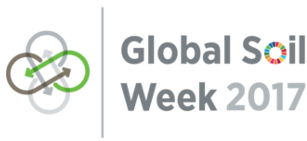Recommendations for improvement of the Zero Draft Outcome Document for the UN Summit to adopt the Post-2015 Development Agenda was made by a coalition of organizations, including the Institute for Advanced Sustainability Studies, active on the issues of food security, land rights, natural resources management and poverty eradication. Leading up to the United Nations summit in September this year, in which the Sustainable Development Goals are to be ratified, the Zero draft has presented 17 Goals with 169 associated targets outlining the post-2015 development agenda. In the Zero Draft document, the agenda aspires „to free the human race from the tyranny of poverty and want and to heal and secure our planet for present and future generations”, and is “determined to take the bold and transformative steps needed to shift the world on to a sustainable path” in which …. “no one will be left behind.”
In the technical brief from 19 June 2015, “Development by people and not just for people: Recommendations on land and natural resources rights and management for the Zero Draft of the Outcome Document for the UN Summit to adopt the Post-2015 Development Agenda” (download document here) governments are urged to keep the profile of land and natural resources high in the agenda, and to embrace the aspirational vision that reflects the ambition of the goals and targets. Secure and equitable land rights for women, men, indigenous peoples and local communities are an essential element to the commitment of leaving no one behind, as stressed by the UN Secretary General’s report “The Road to Dignity by 2030”.
The recommendations for amendments aim to improve the inclusiveness of the Zero Draft in the following four areas:
- Recognition of the agency of people as the centre of the Agenda
- Strengthening the inclusion of indigenous peoples and local communities in the Agenda, and to stand by the principle of free, prior and informed consent (FPIC).
- Promotion of the highest international standards in the work of international financial institutions (IFIs)
- Advancing secure and equitable land rights for women, men, indigenous peoples and local communities
The policy briefing was collaboratively prepared by Action Aid International, the Asian NGO Coalition for Agrarian Reform and Rural Development (ANGOC), Forest Peoples Program, Huairou Commission, the Institute for Advanced Sustainability Study (IASS), the International Work Group for Indigenous Affairs (IWGIA), Habitat for Humanity International, Landesa, Namati, Oxfam International and Redes Chaco.

